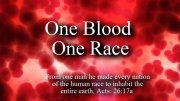For part four of this six-part series on the love that comes from God our Father. We will be looking at the following verses. These form the Christian foundation of divine love upon which the Christian life stands.
The Christian is:
- Loved by Jesus: As the Father hath loved me, so have I loved you: continue ye in my love. John 15:9.
- Loved by the Father: For God so loved the world, that he gave his only begotten Son, that whosoever believeth in him should not perish, but have everlasting life. John 3:16.
- Loved through the Spirit: And hope maketh not ashamed; because the love of God is shed abroad in our hearts by the Holy Ghost which is given unto us. Romans 5:5.
- No Greater Love: Greater love hath no man than this, that a man lay down his life for his friends. John 15:13.
- God is Love: And we have known and believed the love that God hath to us. God is love, and he that dwelleth in love dwelleth in God, and God in him. 1 John 4:16.
- No Separation from God’s Love: Nor height, nor depth, nor any other creature, shall be able to separate us from the love of God, which is in Christ Jesus our Lord. Romans 8:39.
Biblical Worldview
John 15:13 (KJV): “Greater love hath no man than this, that a man lay down his life for his friends.”
From a Biblical worldview, this verse speaks to the ultimate expression of love and sacrifice. Jesus Christ, speaking to His disciples, is foreshadowing His own sacrifice on the cross. By laying down His life, Jesus demonstrates the highest form of love, one that puts others’ needs and well-being above one’s own life. This act of self-sacrifice is central to Christian belief, reflecting the nature of God’s love for humanity.
Key Points:
-
Self-Sacrificial Love: This verse underscores the Christian principle of agape love, a selfless, sacrificial, unconditional love. As 1 John 3:16 (KJV) states, “Hereby perceive we the love of God, because he laid down his life for us: and we ought to lay down our lives for the brethren.”
-
Jesus’ Example: Jesus’ willingness to die for humanity’s sins is the ultimate example of this love, serving as a model for believers to follow in their relationships with others. In Philippians 2:7-8 (KJV), it says, “But made himself of no reputation, and took upon him the form of a servant, and was made in the likeness of men: And being found in fashion as a man, he humbled himself, and became obedient unto death, even the death of the cross.”
-
Christian Duty: Christians are called to emulate this sacrificial love in their own lives, putting others before themselves and demonstrating Christ-like love through their actions. As John 13:34 (KJV) commands, “A new commandment I give unto you, That ye love one another; as I have loved you, that ye also love one another.”
We would appreciate your donation. -
Unity in Christ: This sacrificial love fosters unity among believers, as they are called to be of one heart and mind. In Ephesians 4:2-3 (KJV), it is written, “With all lowliness and meekness, with longsuffering, forbearing one another in love; Endeavouring to keep the unity of the Spirit in the bond of peace.”
-
Love as Witness: Demonstrating this type of love serves as a powerful witness to the world of God’s love. In John 13:35 (KJV), Jesus says, “By this shall all men know that ye are my disciples, if ye have love one to another.”
-
Obedience to God’s Word: Obedience to God’s commandments is integral to expressing true love. Jesus links love and obedience in John 14:15 (KJV), “If ye love me, keep my commandments.” This obedience involves loving others as Jesus loved us, which includes self-sacrifice.
-
Ultimate Sacrifice: The sacrificial love of Jesus is the foundation of Christian faith and salvation. Romans 5:8 (KJV) states, “But God commendeth his love toward us, in that, while we were yet sinners, Christ died for us.”
Conclusion
John 15:13 highlights the highest form of love—self-sacrifice. It calls believers to follow Christ’s example, embodying agape love in their lives. This sacrificial love not only unites Christians but also serves as a testimony of God’s profound love for humanity. As believers live out this command, they reflect the heart of the Gospel and the transformative power of Christ’s love, through their obedience to God’s word and commandments.
Commentaries:
Albert Barnes:
Greater love hath … – No higher expression of love could be given. Life is the most valuable object we possess; and when a man is willing to lay that down for his friends or his country, it shows the utmost extent of love. Even this love for friends has been rarely witnessed. A very few cases like that of Damon and Pythias have occurred where a man was willing to save the life of his friend by giving his own.
It greatly enhances the love of Christ, that while the instances of those who have been willing to die for friends have been so rare, he was willing to die for enemies – bitter foes, who rejected his reign, persecuted him, reviled him, scorned him, and sought his life, 1 Jn 4:10; Rom 5:6, Rom 5:10. It also shows us the extent of his love that he gave himself up, not to common sufferings, but to the most bitter, painful, and protracted sorrows, not for himself, not for friends, but for a thoughtless and unbelieving world. “O Lamb of God, was ever pain was ever love like thine!”
Adam Clarke
John 15:13
That a man lay down his life for his friends –
John 15:13
That a man lay down his life for his friends – No man can carry his love for his friend farther than this: for, when he gives up his life, he gives up all that he has. This proof of my love for you I shall give in a few hours; and the doctrine which I recommend to you I am just going to exemplify myself. There are several remarkable cases, in heathen antiquity, where one friend offered his life for another. The two following will not stand dishonorably even in the book of God; became every thing loving and pure, in heathen, Jew, or Christian, must come from the God of love and purity.
When Cyrus had made war on the king of Armenia, and had taken him, his wife, and children, with Tigranes his son, and his wife, prisoners; treating with the old king concerning his ransom, he said, How much money wilt thou give me to have thy wife again? All that I have, replied the king. And how much wilt thou advance to enjoy thy children again? All that I can produce, answered the king. By reckoning thus, said Cyrus, you prize these at twice as much as you possess. Then, turning to Tigranes, he said, How much wilt thou give as a ransom, that thou mayest have thy wife? (Now Tigranes had been but lately married, και ὑπερφιλων την γυναικα, and loved his wife exceedingly.) He answered, I will indeed, O Cyrus, και της ψυχης πριαιμην, ransom her even with My Life, that she may be no longer in thraldom. See Xenoph. Cyrop. lib. iii. c.
The second example, which is too long to be inserted, is that affecting account of the friendship of Nisus and Euryalus, given by Virgil, in the ninth book of the Aeneis. These two friends, leagued together, had slain many of the Rutulians in a night attack: at last Euryalus was taken prisoner. Nisus, concealed in a thicket, slew several of the enemy’s chiefs with his javelins: Volscens, their general, not seeing the hand by which his officers were slain, determines to wreak his vengeance upon his prisoner. Nisus, seeing his friend about to be transfixed with the sword, rushing out of the wood where he lay hidden, suddenly cries: –
Me! Me! adsum qui Feci! in Me convertite ferrum,
O Rutuli! MeA fraus omnis: – nihil Iste – nec ausus,
Nec potuit – Caelum hoc, et conscia sidera testor!
Tantum infelicem Nimium Dilexit Amicum.
Aen. lib. ix. l. 427, etc.
“Me! Me! he cried, turn all your swords alone
On Me! – the fact confess’d, the fault my own.
He neither could, nor durst, the guiltless youth;
Ye moon and stars, bear witness to the truth!
His only crime (if friendship can offend)
Is too much love to his unhappy friend.”
Explanation: Nisus, seeing that his friend Euryalus is about to be killed, reveals himself from hiding and desperately tries to save Euryalus by taking the blame for their actions. He urges the Rutulians to kill him instead, declaring that he alone is responsible for their deeds and that Euryalus is innocent. Nisus appeals to the heavens (the moon and stars) to bear witness to his truth, emphasizing that Euryalus’s only “crime” is his deep friendship and loyalty.
In summary, Nisus’s speech is a self-sacrificial declaration to save his friend by claiming full responsibility for their actions. He expresses profound friendship and loyalty, willing to sacrifice himself to protect Euryalus.
- Part One: Loved by Jesus
- Part Two: Loved by the Father
- Part Three: Loved through the Spirit
- Part Four: No Greater Love
- Part Five: God is Love
- Part Six: No Separation from God
ESWORD BIBLE SOFTWARE FREE DOWNLOADS
- DESKTOP PC: DOWNLOAD FROM THIS PAGE
- APPLE iPhone $3.99
- ANDROID





